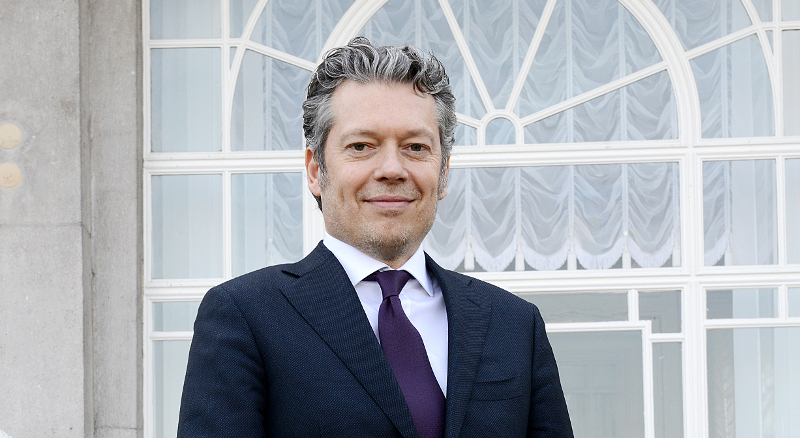
If your organization relies on critical infrastructure to operate, you may benefit from a cyber security assessment. These assessments examine organizational resilience, cybersecurity practices and management of external dependencies. These assessments are free of charge and can help strengthen the security of your organization.
Red-teaming
Red-teaming cyber security assessment services can help companies understand how to protect their systems against cyberattacks. These teams simulate real-world attackers, using proprietary and open-source intelligence tools to carry out reconnaissance and attack scenarios. In some instances, the teams will use social engineering techniques to gain access to data and network resources. The teams will then increase their privileges in order to achieve persistence and establish command-and-control infrastructure.
Red-teaming services can be expensive, so it's important to determine how much you can spend in advance. The cost of a full spectrum simulated attack can be very high, especially if it involves both social engineering as well as physical intrusion. You'll also need to decide how much risk you can tolerate before hiring a red team, as some companies can tolerate a high level of risk, while others have a lower risk tolerance.

Penetration testing
Penetration testing can be a vital component of a cybersecurity assessment. It is the use of automated tools in an attempt to exploit security flaws. The goal is to gain access to the target information and gain valuable data. Permission tests are performed only if the target system and its applications are well understood. One misconception about penetration tests is that they are limited to external attacks. Security researchers have created a webinar and post to address this misconception.
Penetration testing is the process of identifying weaknesses in networks and systems using both automated and manual methods. Internal and external penetration tests are essential to ensure security in an organization. Penetration testing determines whether an attacker could execute malicious activities over the network, without being detected. To determine whether vulnerabilities exist and what defenses are in place, a red team outside of the organization can carry out these tests.
Configuration testing
A security assessment is an important step in identifying vulnerabilities in an organization's IT environment. This is a process that maps access control points and services in order to identify vulnerabilities and assess the risk of security breaches. It also pinpoints any security patches missing from the system. After the assessment is complete, you can decide what steps should be taken to fix the security holes.
CSAs are typically carried out by teams of cyber professionals. These individuals include former UK Government cyber operations experts and are well-versed in security vulnerabilities. The testing teams typically will include at most one CISSP certification holder.

Social engineering
Companies are increasingly concerned about social engineering attacks. You should ensure that you have the right defenses. Being aware of your vulnerabilities is the best way to protect yourself, especially with emails. Always verify that unsolicited messages are not malicious and authentic.
Social engineering cyber security assessments are an essential tool for any company to help identify possible vulnerabilities and take precautions to reduce these risks. These assessments provide detailed analysis of online information which could pose a danger. An assessment can include simulated attacks that will help employees avoid being targeted by phishing campaigns.
FAQ
What is a consultant anyway?
Consultants are people who provide services to others. This is more than a job title. You help others achieve their goals. This is done by helping others understand their options and making the right decisions.
Consultants have the ability to solve any problems or challenges that may arise from projects. They offer guidance and advice about how to implement such solutions.
A consultant should be able to answer questions about anything related to business, technology, finance, law, management, leadership, strategy, operations, customer service, human resources, etc.
What is the difference between a consultant and an advisor?
An advisor is someone who provides information about a subject. Consultants offer solutions to problems.
A consultant works directly alongside clients to help them realize their goals. Advisors advise clients indirectly via books, magazines, lectures and seminars, etc.
What kind of jobs are there for consultants?
Consulting requires an in-depth understanding of operations and business strategy. Understanding how businesses work and their place in society is also essential.
To be successful as a consultant, you must have strong communication skills and an ability to think critically.
Because consultants may be required to perform different tasks at different times, they must be flexible. They should be able change direction quickly, if required.
They should be prepared to travel extensively in support of their clients. This type work can take them anywhere in the world.
They also need to be able to handle pressure and stress well. Consultants may need to meet strict deadlines.
Consultants might be required to work long hours. You may not get overtime pay.
How can I become a successful consultant
Finding a passion area is the first step. Building relationships is the next step. It is important to understand the needs of clients and their business. The final step is to provide results.
While you don’t have to be the greatest at everything, you have to be better than everyone else. You must also have passion for your work. It doesn't suffice just to say "I'm going be a Consultant." You have to believe in yourself, and in what you are doing.
Who hires consultants
Many businesses hire consultants to assist them with their projects. These include small businesses, large companies, government agencies and non-profits.
These consultants may work directly for the organization, or freelance. The hiring process will vary depending on the complexity and size of the project.
Many rounds of interviews are required when hiring consultants. Then, the final decision will be made about who you believe is best for the job.
How can I find clients for my consulting business?
It is important to identify an area of passion. You could choose anything from public relations to social media, but it should be something you love. You may need to start small and find a niche market like web design. Once you have discovered the niche, understand what it does. What problems does the solution solve? Why should people use this? What are the benefits?
It is also possible to approach businesses directly.
If all else fails why not offer your services to free events like conferences and networking evenings? You'll meet many potential customers without spending money on advertising, and you'll be able to show off your skills.
Statistics
- WHY choose me: Why your ideal client should choose you (ex: 10 years of experience and 6-week program has helped over 20 clients boost their sales by an average of 33% in 6 months). (consultingsuccess.com)
- "From there, I told them my rates were going up 25%, this is the new hourly rate, and every single one of them said 'done, fine.' (nerdwallet.com)
- On average, your program increases the sales team's performance by 33%. (consultingsuccess.com)
- Over 50% of consultants get their first consulting client through a referral from their network. (consultingsuccess.com)
- So, if you help your clients increase their sales by 33%, then use a word like “revolution” instead of “increase.” (consultingsuccess.com)
External Links
How To
What does a typical day look like for a consultant?
Depending on what type of work you do, your typical day may vary. But generally speaking, you will spend time researching and planning new ideas, meeting clients, and preparing reports.
You'll often have meetings with clients where you can discuss issues and solve problems. These meetings can take place over the phone, via email, online, or face to face.
Also, proposals are documents that outline your ideas or plans for clients. You will need to discuss these proposals with a mentor or colleague before you present them to clients.
After all the planning and preparation you will have to put your efforts into creating some content. Writing articles, designing websites, editing photos or conducting interviews are just some of the options.
Depending on your project's scope, it may be necessary to do research to get relevant statistics. For instance, you might want to find out how many people you have and if they are buying more than just one product or service.
Once you have enough information, it is time to present your findings and conclusions to clients. You may give your findings orally or in written form.
You must also follow up with clients following the initial consultation. You might contact them regularly to check on their progress or send them emails to confirm they have received your proposal.
While this can be a slow process, it's essential to remain focused and maintain good working relationships with clients.